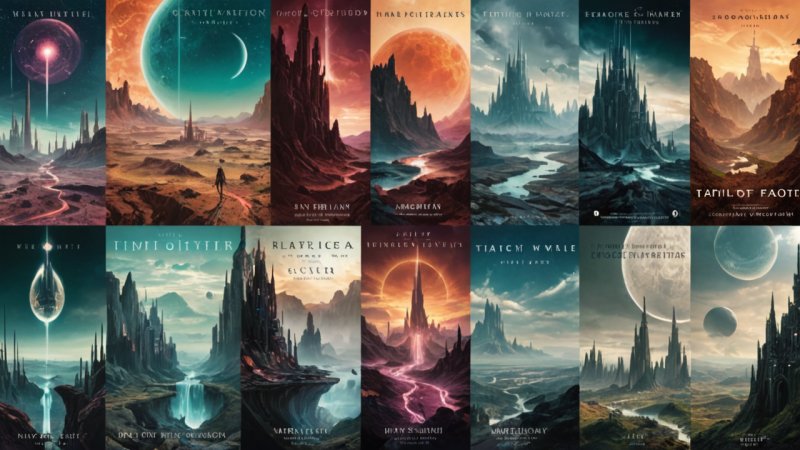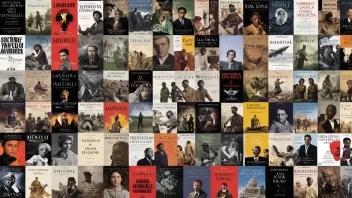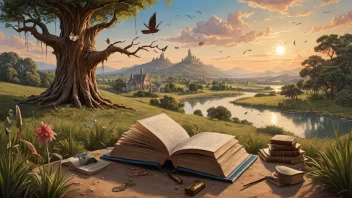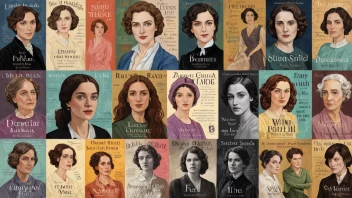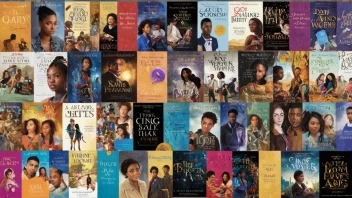Speculative fiction is a genre that stretches the imagination, embracing elements of fantasy, science fiction, and otherworldly narratives. It allows authors to explore themes that challenge our perception of reality and human experience. Here, we delve into some of the most frequently asked questions about bestselling works within this exciting genre.
What is speculative fiction?
Speculative fiction is an umbrella term that encompasses various genres, including science fiction, fantasy, horror, and magical realism. It often poses 'what if' scenarios that explore the potential consequences of technological advancements, alternate realities, and fantastical elements.
Which bestselling authors are known for their speculative fiction?
Some of the most notable authors in speculative fiction include:
- Margaret Atwood - Known for works like "The Handmaid's Tale," which explores dystopian themes.
- Isaac Asimov - Famous for his "Foundation" series and robot stories.
- Philip K. Dick - Renowned for his thought-provoking novels such as "Do Androids Dream of Electric Sheep?"
- Octavia Butler - A leading figure in science fiction, particularly known for her "Patternist" series.
- Neil Gaiman - Celebrated for blending fantasy with myth in works like "American Gods."
What are some common themes in speculative fiction?
Speculative fiction often delves into complex themes, including:
- Identity and Human Experience - Many stories question what it means to be human.
- Technology and Its Impact - Exploring the societal consequences of technological advancements.
- Dystopia vs. Utopia - Examining the balance between ideal societies and their potential downfalls.
- Environmental Concerns - Addressing climate change and ecological issues.
- Power and Control - Investigating the dynamics of authority and rebellion.
Can you recommend some bestselling speculative fiction books?
Absolutely! Here are a few must-reads:
- The Night Circus by Erin Morgenstern - A mesmerizing tale of magic and competition.
- The Martian by Andy Weir - A gripping survival story set on Mars.
- Station Eleven by Emily St. John Mandel - A haunting exploration of life after a pandemic.
- Children of Time by Adrian Tchaikovsky - A unique take on evolution and the future of humanity.
- The Fifth Season by N.K. Jemisin - A powerful blend of fantasy and social commentary.
How does speculative fiction reflect societal issues?
Speculative fiction often serves as a mirror to society, allowing authors to comment on current issues through metaphor and allegory. By creating alternate realities, writers can explore themes such as inequality, environmental degradation, and the ethical implications of scientific advancements.
Why should I read speculative fiction?
Reading speculative fiction can broaden your perspective and spark your imagination. It encourages critical thinking about our world and invites readers to envision future possibilities. Moreover, the genre often combines thrilling narratives with deep philosophical questions, making for an engaging reading experience.
Are there any popular speculative fiction sub-genres?
Yes, speculative fiction includes a variety of sub-genres such as:
- Science Fiction - Focused on futuristic concepts and technologies.
- Fantasy - Involves magical elements and mythical creatures.
- Dystopian Fiction - Depicts oppressive societies and explores the consequences of totalitarianism.
- Steampunk - Merges Victorian aesthetics with advanced steam-powered technology.
- Cyberpunk - Centers on high-tech and low-life, often set in dystopian futures.
What literary devices are commonly used in speculative fiction?
Authors in this genre frequently employ:
- World-building - Creating detailed, immersive worlds.
- Allegory - Using symbolic figures and actions to convey deeper meanings.
- Foreshadowing - Hinting at future events to create suspense.
- Imagery - Crafting vivid descriptions that evoke sensory experiences.
- Metaphor - Drawing comparisons to illustrate complex ideas.
How has speculative fiction evolved over the years?
Speculative fiction has evolved from classic works in the early 20th century to diverse narratives that address contemporary issues. The genre has become more inclusive, with a growing number of voices from various backgrounds contributing unique perspectives. This evolution reflects changes in societal norms, technology, and cultural discourse.
In conclusion, speculative fiction is a dynamic and thought-provoking genre that continues to captivate readers with its imaginative storytelling and profound themes. By exploring bestselling works, we can appreciate the ways in which these narratives reflect and challenge our understanding of the world around us.
